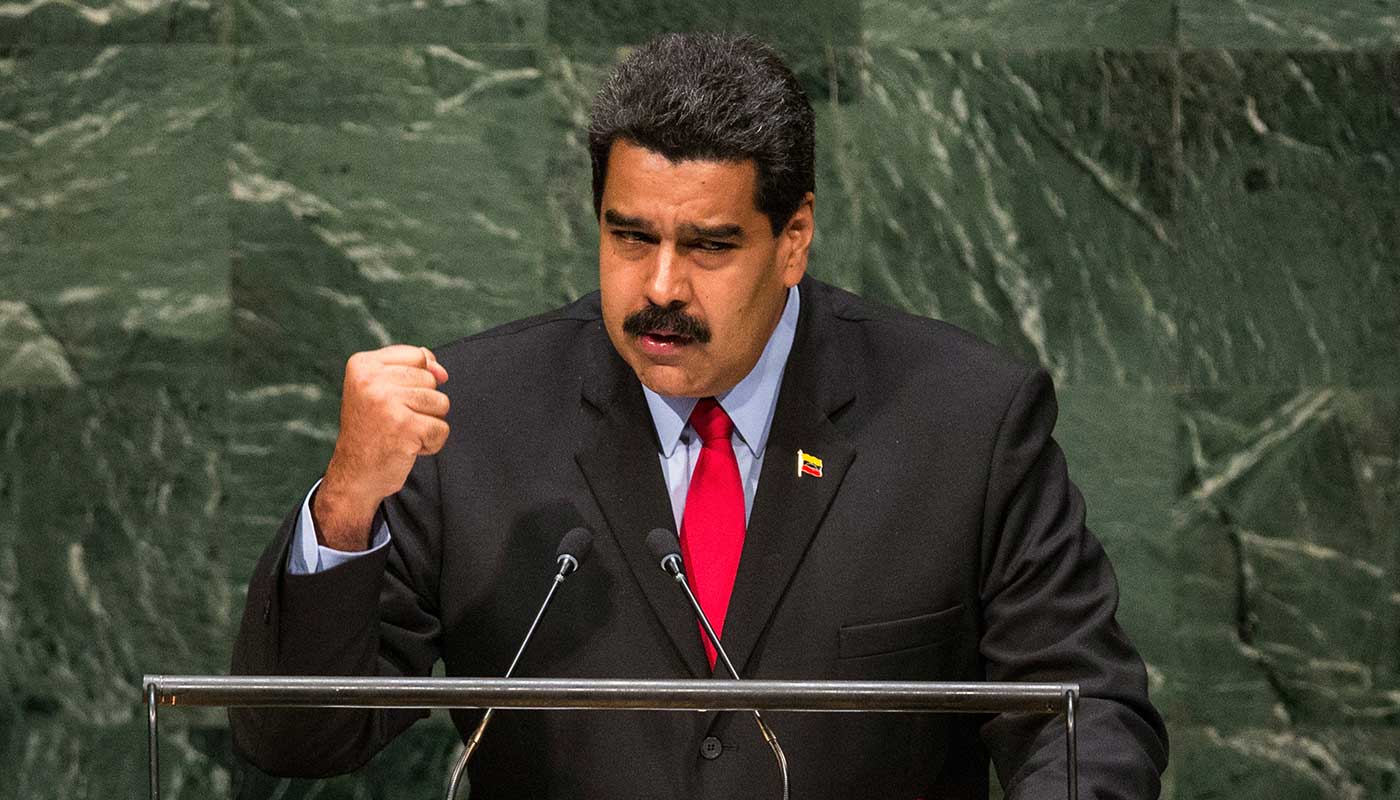Venezuelan opposition banned from presidential election
Three major parties barred by Nicolas Maduro following boycott of mayoral elections

A free daily email with the biggest news stories of the day – and the best features from TheWeek.com
You are now subscribed
Your newsletter sign-up was successful
Venezuelan President Nicolas Maduro has announced that three major opposition parties will be banned from participating in the country’s presidential election in 2018.
Maduro said the Justice First, Popular Will and Democratic Action parties will be excluded from the ballot because they had boycotted mayoral elections held on Sunday and “disappeared from the political map”.
“A party that has not participated today and has called for the boycott of the elections can't participate anymore,” Maduro said. “If they don't want elections, what are they doing? What's the alternative? War?”
The Week
Escape your echo chamber. Get the facts behind the news, plus analysis from multiple perspectives.

Sign up for The Week's Free Newsletters
From our morning news briefing to a weekly Good News Newsletter, get the best of The Week delivered directly to your inbox.
From our morning news briefing to a weekly Good News Newsletter, get the best of The Week delivered directly to your inbox.
The three main opposition parties had announced the boycott in October, claiming that the electoral system was biased, and that the election only served Maduro’s “dictatorship”.
“Maduro's pronouncement is designed to provoke the opposition,” the BBC reports. “Especially since he justified the move saying it was a condition set out by the National Constituent Assembly - a body that the opposition refuses to recognise because they say it's undemocratic.”
The Independent says the announcement “confused opposition supporters already disillusioned at the failure to weaken Maduro in months of protests that took 125 lives earlier this year”.
“Key opposition figures who have led street protests against Maduro, including Henrique Capriles and Leopoldo Lopez, would be included in the ban,” Deutsche Welle reports.
A free daily email with the biggest news stories of the day – and the best features from TheWeek.com
-
 Local elections 2026: where are they and who is expected to win?
Local elections 2026: where are they and who is expected to win?The Explainer Labour is braced for heavy losses and U-turn on postponing some council elections hasn’t helped the party’s prospects
-
 6 of the world’s most accessible destinations
6 of the world’s most accessible destinationsThe Week Recommends Experience all of Berlin, Singapore and Sydney
-
 How the FCC’s ‘equal time’ rule works
How the FCC’s ‘equal time’ rule worksIn the Spotlight The law is at the heart of the Colbert-CBS conflict
-
 Epstein files topple law CEO, roil UK government
Epstein files topple law CEO, roil UK governmentSpeed Read Peter Mandelson, Britain’s former ambassador to the US, is caught up in the scandal
-
 Iran and US prepare to meet after skirmishes
Iran and US prepare to meet after skirmishesSpeed Read The incident comes amid heightened tensions in the Middle East
-
 Israel retrieves final hostage’s body from Gaza
Israel retrieves final hostage’s body from GazaSpeed Read The 24-year-old police officer was killed during the initial Hamas attack
-
 China’s Xi targets top general in growing purge
China’s Xi targets top general in growing purgeSpeed Read Zhang Youxia is being investigated over ‘grave violations’ of the law
-
 Panama and Canada are negotiating over a crucial copper mine
Panama and Canada are negotiating over a crucial copper mineIn the Spotlight Panama is set to make a final decision on the mine this summer
-
 How oil tankers have been weaponised
How oil tankers have been weaponisedThe Explainer The seizure of a Russian tanker in the Atlantic last week has drawn attention to the country’s clandestine shipping network
-
 Why Greenland’s natural resources are nearly impossible to mine
Why Greenland’s natural resources are nearly impossible to mineThe Explainer The country’s natural landscape makes the task extremely difficult
-
 Iran cuts internet as protests escalate
Iran cuts internet as protests escalateSpeed Reada Government buildings across the country have been set on fire